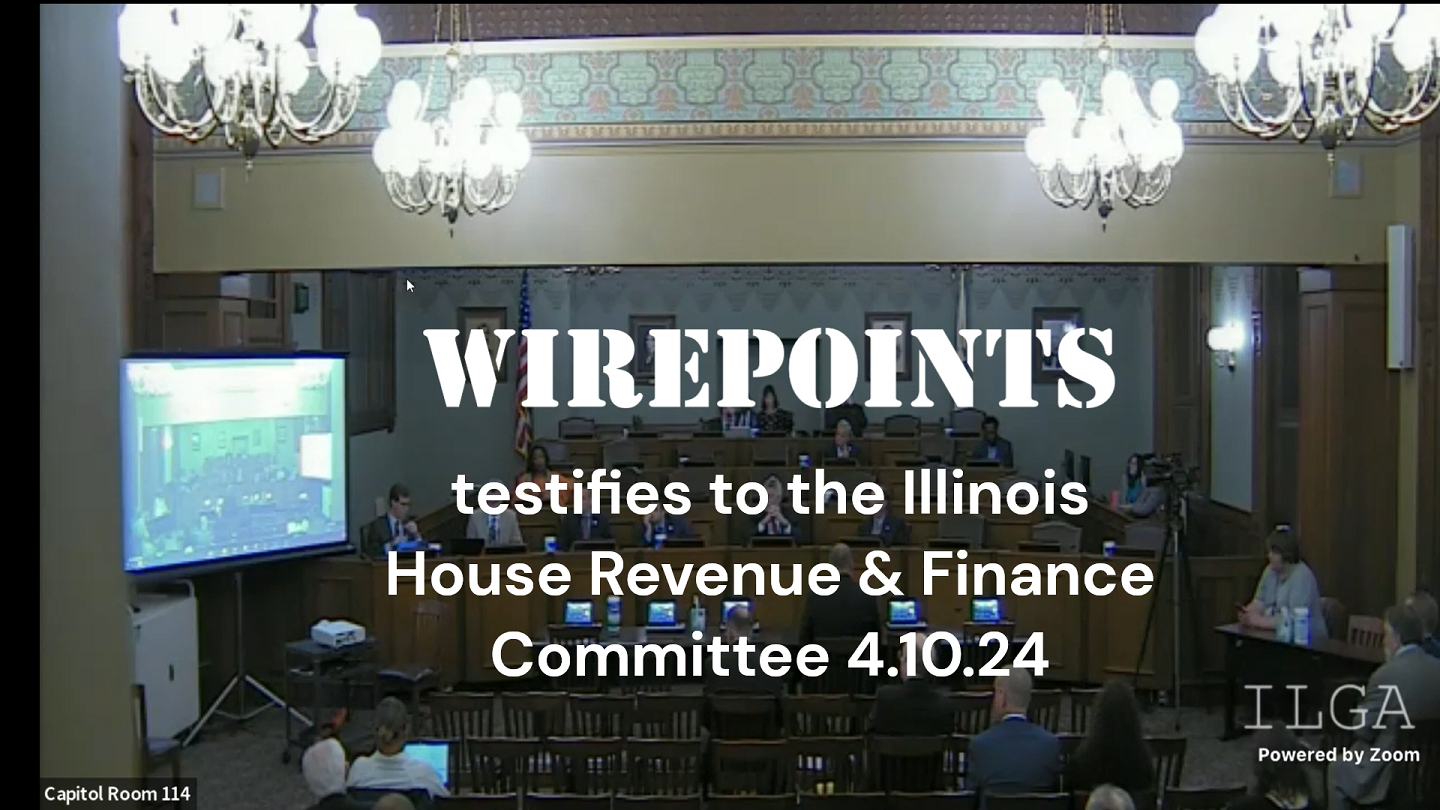By: Mark Glennon*
Should the solvency of the state and many of its cities, and their capacity to fund schools and other essential services, be determined largely by arcane accounting assumptions set by pension boards of trustees or elected officials choosing to ignore professionally established accounting principles?
Public pensions in Illinois effectively soon will be keeping two very different sets of books because new accounting rules take effect next week.
One set of books will comply with the new Governmental Accounting Standard Board rules and will go into official government financial statements. It will show a dramatically worse predicament for pensions.
The other will be kept by the pensions themselves — their boards of trustees — or by politicians. And it’s that book, including their decisions about critical assumptions like assumed rates of return, that will determine annual contributions required from taxpayers.
The differences will be dramatic. Per a Bloomberg article from yesterday, “the Teachers Retirement System of the State of Illinois could see its funded level decline to 17.5 percent from 48.4 percent” under the changes required under the new accounting rules. And per a researcher mentioned in our earlier article, Chicago pensions could see their unfunded liabilities zoom from the commonly-reported $18 or $20 billion to as much as $60 billion.
So, Illinois state and local pensions may continue to fund their pensions based on rosy scenarios and at the same time report a very different story in financial reports. Some pensions may adopt the new new rules to make the two books consistent, but the major ones aren’t doing that for now. Just this week we had an example of how a small change in one accounting assumption has a huge impact. The Illinois teachers’ pension lowered its assumed rate of return just half a percent, but the result would require an additional $500 million dollars from the state per year.
It gets worse. Traditionally, those union dominated boards of trustees were inclined to use inflated assumptions (like high expected rates of return) to understate pension problems, preferring to rely on the constitutional prohibition of benefit reductions. That meant the pensions went underfunded but it freed up money for salary increases, and unions figured the pensions would eventually be funded somehow.
Those premises are not holding up, so the perversion may flip for pensions where the trustees choose the assumptions. New “reform” measures passing, like the recent one for two of Chicago’s pensions, contain guarantied mandates to fund the pensions to “hit the ARC” (for Chicago, starting in year six) — which means getting on a payment plan that that actuaries say will take the pension to full funding. But that ARC will be calculated using the pension’s assumptions, not the new, more conservative accounting rules from GASB. So, union representatives on those pension boards no doubt will soon realize they can force more money into their pensions simply by lowering one key assumption on which they are based — the assumed rate of return.
For pensions where actuarial assumptions are made by elected officials, like most local fire and police pensions, there’s a different story but also crazy. They will want to see assumptions kept optimistic for the pensions, and the gap between what what the pensions report and what the municipality reports will spike.
How will rating agencies and the bond markets react? Rating agencies have known this was coming, so the they presumably will try to keep from laughing while they stay pat.
As for the bond market, only time will tell. From Bloomberg:
The new numbers may not affect debt costs in the $3.7 trillion municipal bond market because of limited supply and small differences in yields between issuers, said Richard Ciccarone, president of Merritt Research Services in Chicago. Still, borrowers that don’t address shortfalls may eventually be penalized, he said. “Over time, as the pension crisis continues, you’re going to see spreads widening,” Ciccarone said.
A different analyst was less sanguine earlier in the week: “Places like Chicago or Charleston, W.Va., will be effectively unable to borrow in traditional bond markets.”
It’s just plain nuts that state and local government’s ability to pay for services other than pensions should depend heavily on what accounting assumptions are set by pension trustees or elected officials ignoring professionally accepted accounting principles.
Totally insane.
Updated June 29, 2013
*Mark Glennon is founder of WirePoints.

 If you’re frustrated with Illinois’ educational results, you may want to follow the money from teachers unions. In the last four years alone, Illinois lawmakers and political candidates have taken nearly $30 million in contributions from teachers unions and their national affiliates.
If you’re frustrated with Illinois’ educational results, you may want to follow the money from teachers unions. In the last four years alone, Illinois lawmakers and political candidates have taken nearly $30 million in contributions from teachers unions and their national affiliates.
 Wirepoints President Ted Dabrowski testified on April 10, 2024 to members of the House Revenue and Finance Committee at the invitation of Rep. Joe Sosnowski. Ted told lawmakers that the state’s property tax burden has become dire for countless Illinoisans.
Wirepoints President Ted Dabrowski testified on April 10, 2024 to members of the House Revenue and Finance Committee at the invitation of Rep. Joe Sosnowski. Ted told lawmakers that the state’s property tax burden has become dire for countless Illinoisans. Ted joined WLS 890’s PM Chicago Show to discuss Chicago’s worsening pension crisis, why the city’s crisis makes it such an outlier nationally, its negative impact on residents, government workers and retirees alike, and what Mayor Brandon Johnson should do about it.
Ted joined WLS 890’s PM Chicago Show to discuss Chicago’s worsening pension crisis, why the city’s crisis makes it such an outlier nationally, its negative impact on residents, government workers and retirees alike, and what Mayor Brandon Johnson should do about it.
This kind of thing is totally out of control in Illinois. It’s beyond me why securities regulators aren’t slamming the whole thing down. If private offerings were as muddled and manipulated as financial information is for public issuers in Illinois, hundreds of people would be in jail.
The adoption of GASB regulations which require a more realistic examination of assumptions is progress, albeit small. The fact is that many pension plans around the country struggle to make required contributions. Public plans facing a higher bar due to the new regulations will not be able to clear that bar. Though pension funding levels will not improve, the new regulations shine a light on the the financial distress governments face. Elected and appointed officials everywhere need to get serious about reducing the cost of government at all levels. In Illinois this means that we need to reduce the number… Read more »